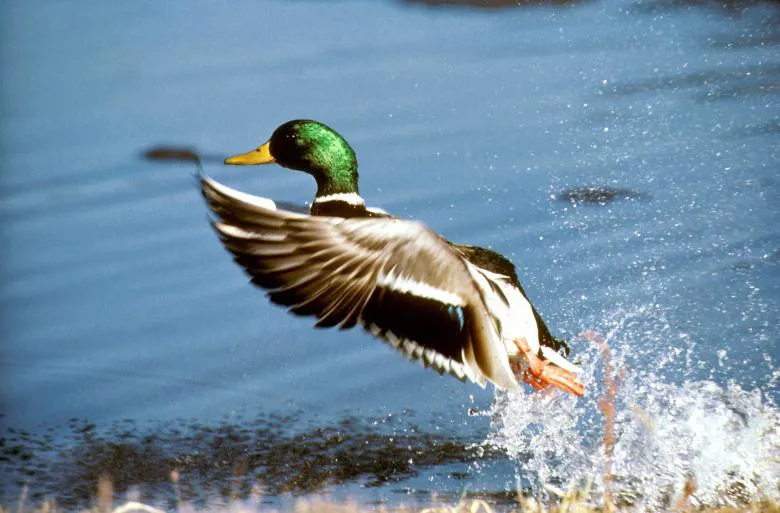With an abundance of habitat, food, water, and wildlife the Eastern Shore of Virginia is a paradise for hunters. Many individuals who choose to hunt the Eastern Shore do so on their own private property. These hunters who are properly licensed and take all the steps necessary to satisfy all state and federal hunting regulations eagerly await the next migratory bird season and track it on their calendars. Mindful of daily bag limits, aggregate bag limits, acceptable baiting practices and other regulations, these hunters bring along their faithful dogs (I am partial to Labrador and Chesapeake Bay Retrievers) to collect the catch. Yet occasionally these hunters discover something in the woods that they are not expecting. No, I am not talking about Bigfoot. Not on the Eastern Shore of Virginia, anyway. What these individuals do not expect is to see are federal agents, often on privately owned land, and without search warrants. Yes. Federal agents on private property. Investigating potential migratory bird hunting violations. Often dressed in camouflage or in ghillie suits to conceal their location. They do not put this in the guidebooks at the rest stops up and down Route 13.
The Eastern Shore of Virginia is in the south coastal patrol zone, a patrol area of the United States Fish and Wildlife Service that includes coastal Delaware, Maryland, and parts of Virginia. The Fish and Wildlife Service, an arm of the Department of the Interior, has an office in Chincoteague, Virginia and has agents who patrol the surrounding areas. It must be acknowledged that the Fish and Wildlife Service do an incredible job maintaining the Chincoteague National Wildlife Refuge and the native flora and fauna, to include migratory game birds and their habitats. These agents are conservationists as well and take pride in the work they do protecting the natural treasures along the Eastern Shore. Many hunters are the same, conservationists who go to great lengths to cultivate the animals who live on their property and the birds who work the flyways overhead.
If you find yourself duck hunting or hunting for other migratory birds on the Eastern Shore of Virginia, be aware that this area is patrolled by the United States Fish and Wildlife Service. Federal Fish and Wildlife Officers are extremely well-trained and are versed in wildlife conversation, like many hunters and many individuals who live and play on the Eastern Shore. The Fish and Wildlife Service has rules for their officers who are investigating possible violations of the Migratory Bird Treaty Act. These rules have been codified in a training manual for officers. That manual states that search warrants are required to investigate hunters for violations of the migratory bird treaty act[1]. Yet, many times these federal agents do not have search warrants.
It can be confusing for hunters and lawyers why game wardens do not obtain search warrants when investigating migratory bird act violations. The Migratory Bird Treaty Act in the United States Code establishes the federal framework under which hunters can take, possess, and/or transport migratory birds. When one reads The Migratory Bird Treaty Act, in plain words it states that, “Any employee of the Department of the Interior … shall have authority, with a search warrant, to search any place.[2]” It is common sense to think that private agricultural or residential land is “any place” and that a search warrant is required to search that land. Many lawyers agree with that position. Especially when the Migratory Bird Act is read along with The Endangered Species Act of 1973[3] and the Airborne Hunting Act[4]. Those two Acts, which protect endangered species, also state in plain language that officers may, “search or seize, with or without a warrant, as authorized by law.[5]” This rationale makes sense- if a federal wildlife officer has reason to believe that an individual has or is going to hunt a species with very limited living numbers, such as a bald eagle or a tiger, they can investigate that allegedly illegal hunting activity without a search warrant because there may not be time to get a search warrant before the animal is taken. However, and with all due respect to the beautiful American wood duck, they are more plentiful in the United States than bald eagles and under this rationale, federal game wardens should have time to seek search warrants when investigating migratory bird act violations, especially when their investigations involve sitting on a pond and no one is actively hunting. Unfortunately for hunters, federal game wardens disagree, and they will often conduct investigations on private property without search warrants. And their rationale and justification in doing so was created in the highest court in the country – the doctrine of Open Fields.
What is the doctrine of Open Fields? Open Fields is an exception to the search warrant requirement under the Fourth Amendment of the Constitution. It is the Fourth Amendment of the United States Constitution that keeps individuals secure in their persons, houses, and with their belongings. The Fourth Amendment normally requires a search warrant, supported by probable cause, for a search to occur by a government agent. Through the years, many exceptions have been created authorizing a search without a search warrant – namely consent searches, search and seizure of items in plain view of law enforcement, and search incident to arrest to name a few. Another warrantless search exception is the Open Fields Doctrine. The United States Supreme Court created the Open Fields Doctrine in 1924[6]. The Hester case came to the Supreme Court from the Western District of South Carolina and involved local revenue officers observing Hester and an acquaintance on their private property passing around a jug that was easily recognizable as being used to create and likely contained moonshine whiskey. This jug was left in the woods near the Hester house and recovered by revenue officers who did not have a warrant. In his prosecution for concealing spirits, Hester alleged that the revenue officers had no warrant, and they were trespassing on his privately owned land, and their actions in searching the woods and seizing the jug containing what was confirmed to be moonshine was all done in violation of his rights under the Fourth Amendment to the U.S. Constitution. The Courts rejected Hester’s arguments and ruled that the search of Hester’s private property and seizure of the jug found on his property did not implicate the Fourth Amendment, and there was no improper action from the revenue officers. The Supreme Court held that even though there was a trespass and a warrantless search, the Fourth Amendment was not implicated because open fields are not constitutionally protected as they are outside the curtilage of a home[7]. Courts define the curtilage of the home to be the enclosed space of ground and buildings immediately surrounding a dwelling house, namely the area around the home that is “intimately linked to the home, both physically and psychologically … [where] privacy expectations are most heightened.[8]”
Hester has been affirmed in courts across the United States, including federal appellate courts that serve Virginia’s Eastern Shore. Unfortunately for hunters and landowners who privately hold vast acres of environmental habitat for migratory birds and other animals, fences and posted No Trespassing signs do not turn these large pastures of land into curtilage. Courts have interpreted private land to be “Open Fields” even if one must enter or open a gate or fence to get to that land. Also, no matter how much time is spent by the landowner improving the grounds for environmental conservation or beautification efforts, those efforts similarly do not turn said land into the curtilage of a home. Be aware that this is not an exhaustive list of what differentiates an Open Field from the curtilage of a home, an area that requires police to obtain a search warrant to search, but it is representative of the broad scope of the Open Fields Doctrine and how it permits federal game wardens to conduct warrantless investigations on private property.
When hunting Virginia’s Eastern Shore, be mindful of the Open Fields Doctrine and what it means for federal game wardens and their investigations AND more importantly those that they are investigating. The Department of the Interior and the Virginia Department of Wildlife Resources[9] have easily accessible regulations and calendars outlining all applicable laws and statutes. Happy hunting.
[1] See U.S. Fish and Wildlife Service Manual on Searches and Seizures, 445 FW 1.
[2] United States Code section 16 U.S §706.
[3] United States Code section 16 U.S §1540.
[4] United States Code section 16 U.S §742.
[5] United States Code section 16 U.S §1540(e)(3).
[6] Hester v. United States, 267 U.S. 57 (1924).
[7] Hester at 59.
[8] Florida v. Jardines, 569 U.S. 1 (2013).
[9] https://dwr.virginia.gov/hunting/regulations/migratory-gamebirds/

